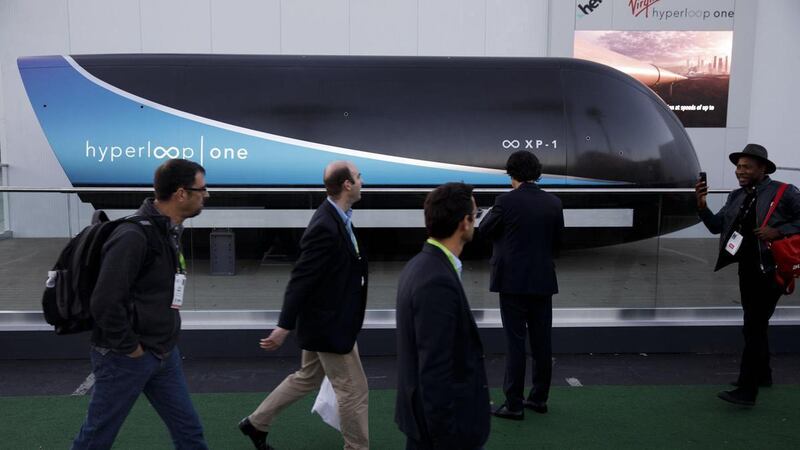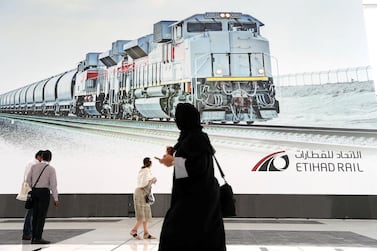Saudi Arabia’s Ministry of Transport has joined forces with Richard Branson’s Virgin Hyperloop One to conduct a pre-feasibility study on the use of hyperloop technology for the transport of passengers and cargoes in the kingdom.
The study will examine viable routes, expected demand, anticipated costs and explore the socio-economic benefits of creating jobs and developing high-tech skills, said a joint statement.
“With the transformative hyperloop technology, Saudi Arabia will not only unlock unparalleled benefits for its people and the economy but will continue to lead the region into an era of prosperity,” said Saleh bin Nasser Al-Jasser, kingdom’s Minister of Transport.
Last year, Virgin Hyperloop One announced it would undertake a separate study with Saudi Arabia's Economic City Authority to develop the world's longest test track.
The company is also in talks about possible projects in several US states and has a long-standing interest in the UAE and wider Middle East. It is also considering building a centre of excellence, including manufacturing facilities, in Saudi Arabia and it counts DP World, the Dubai-based ports operator, and the Abu Dhabi Capital Group, as major investors.
Once the technology is ready, Virgin Hyperloop One is aiming to transport passengers at speeds of up to 1,080 kilometres per hour, nearly three times faster than a conventional high-speed rail.
It would cut the travel time from Riyadh to Jeddah to only 46 minutes. A journey from Riyadh to Qiddiyah would take only 5 minutes, while a trip from Jeddah to Neom could be completed in 40 minutes and from Riyadh to Abu Dhabi in only 48 minutes.
Hyperloop technology relies on depressurised tubes carrying passengers or cargoes in pods.
“In line with Vision 2030, I am confident we will see the world’s first commercial hyperloop within the decade. The economic potential is enormous to connect passengers and cargo at unprecedented speeds with zero direct emissions,” said Jay Walder, chief executive of Virgin Hyperloop One.
The new system would be up to ten times more energy efficient than short-haul flights and 50 per cent more efficient than high-speed trains.
In fact, a hyperloop in the region could be powered entirely by solar panels which will cover the tube, making the technology hugely attractive to the sun-abundant region.
Several companies and universities are now working on hyperloop systems, with the idea first floated by Tesla’s Elon Musk in 2012.
Two international firms are leading the race to bring a working hyperloop system to the mass transport market - Hyperloop Transportation Technologies and the Virgin Hyperloop One.
Both operators are planning routes in the UAE and elsewhere. Virgin Hyperloop One is working to create a 150km track linking Indian cities of Mumbai and Pune, meaning a journey that takes three hours by car could be completed in 25 minutes.
Hyperloop TT is planning three high-speed cargo lines along a 60km track from the key port of Hamburg, Germany.








